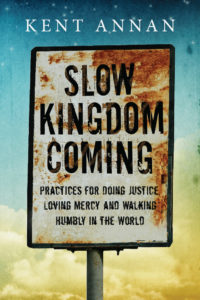
Jessica Kelley is a writer, speaker, and survivor of child loss. She has a B.S. in Psychology, a M.S. in Counseling & Human Development, and experience as a School Counselor. Born and raised in the South, Jessica now lives with her husband and five-year-old daughter in Saint Paul, Minnesota. She survives the absurdly long winters by going to the gym, dreaming about the beach, and eating copious amounts of chocolate. You can find her processing her faith journey at JessicaKelley.com.
Lord Willing?: Wrestling with God’s Role in My Child’s Death
Does God’s perfect plan really include this?
When her young son was diagnosed with brain cancer, Jessica Kelley couldn’t stomach Christian clichés. God’s will? Divine design? The Lord’s perfect plan? In Lord Willing?, Kelley boldly tackles one of the most difficult questions of the Christian life: if God is all-powerful and all-loving, why do we suffer? For Kelley, this question takes an even more painful and personal turn: did God lack the power or the desire to spare her four-year-old son?
For those dissatisfied with easy answers to why evil and tragedy occur, Lord Willing? offers a refreshing, hopeful journey straight to the heart of God. Be prepared for something more beautiful, more pure, and more healing than you can dare to imagine. -From the Publisher
Our Sponsor:
If you liked this episode then you might also like…
Seminary Dropout 022: Philip Yancey
Subscribe/Rate/Review Seminary Dropout in iTunes
*links to guest books or other products are affiliate links




Missio Alliance Comment Policy
The Missio Alliance Writing Collectives exist as a ministry of writing to resource theological practitioners for mission. From our Leading Voices to our regular Writing Team and those invited to publish with us as Community Voices, we are creating a space for thoughtful engagement of critical issues and questions facing the North American Church in God’s mission. This sort of thoughtful engagement is something that we seek to engender not only in our publishing, but in conversations that unfold as a result in the comment section of our articles.
Unfortunately, because of the relational distance introduced by online communication, “thoughtful engagement” and “comment sections” seldom go hand in hand. At the same time, censorship of comments by those who disagree with points made by authors, whose anger or limited perspective taints their words, or who simply feel the need to express their own opinion on a topic without any meaningful engagement with the article or comment in question can mask an important window into the true state of Christian discourse. As such, Missio Alliance sets forth the following suggestions for those who wish to engage in conversation around our writing:
1. Seek to understand the author’s intent.
If you disagree with something the an author said, consider framing your response as, “I hear you as saying _________. Am I understanding you correctly? If so, here’s why I disagree. _____________.
2. Seek to make your own voice heard.
We deeply desire and value the voice and perspective of our readers. However you may react to an article we publish or a fellow commenter, we encourage you to set forth that reaction is the most constructive way possible. Use your voice and perspective to move conversation forward rather than shut it down.
3. Share your story.
One of our favorite tenants is that “an enemy is someone whose story we haven’t heard.” Very often disagreements and rants are the result of people talking past rather than to one another. Everyone’s perspective is intimately bound up with their own stories – their contexts and experiences. We encourage you to couch your comments in whatever aspect of your own story might help others understand where you are coming from.
In view of those suggestions for shaping conversation on our site and in an effort to curate a hospitable space of open conversation, Missio Alliance may delete comments and/or ban users who show no regard for constructive engagement, especially those whose comments are easily construed as trolling, threatening, or abusive.